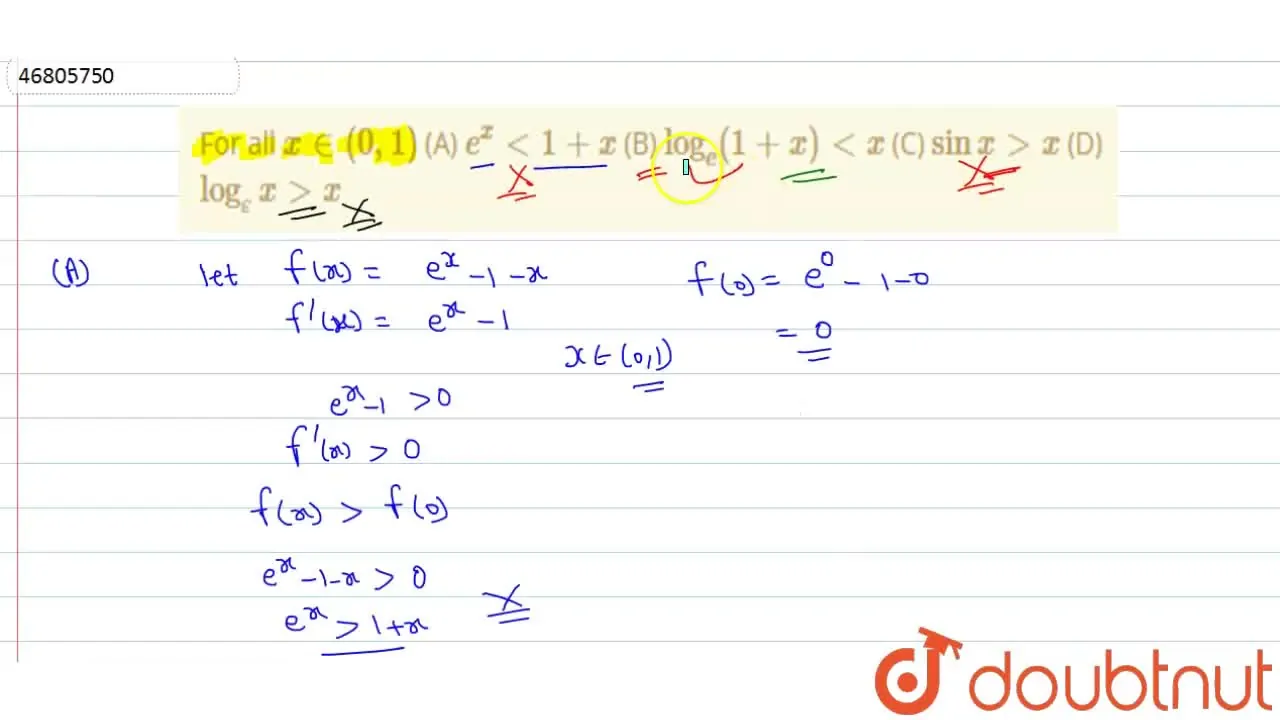For all (A) (B) (C) (D)
A
B
C
D
Video Solution
Text Solution
The correct Answer is:C
Option (a) Let
then
increase in
for
for
Option (b) Let
for
decreases for
for
for
or for
Therefore, Option (b) is the answer.
Option
Let
For
is decreasing function.
which is not true.
Option (d)
Therefore, is an increasing function.
Therefore, option (d) is not the answer.
|
Updated on:21/07/2023
Related Playlists
- BOOK - IIT JEE PREVIOUS YEARCHAPTER - APPLICATION OF DERIVATIVES EXERCISE - RATE MEASURE, INCREASING AND DECREASING FUNCTIONS (OBJECTIVE QUESTIONS II)3videos
APPLICATION OF DERIVATIVES
- BOOK - IIT JEE PREVIOUS YEARCHAPTER - APPLICATION OF DERIVATIVES EXERCISE - RATE MEASURE, INCREASING AND DECREASING FUNCTIONS (FILL IN THE BLANKS )2videos
APPLICATION OF DERIVATIVES
- BOOK - IIT JEE PREVIOUS YEARCHAPTER - APPLICATION OF DERIVATIVES EXERCISE - EQUATIONS OF TANGENT AND NORMAL (INTEGER ANSWER TYPE QUESTIONS )1videos
APPLICATION OF DERIVATIVES
- BOOK - IIT JEE PREVIOUS YEARCHAPTER - 3D GeometryEXERCISE - Equation of Plane Objective Question II (Integer Answer Type Question)1videos
3D Geometry
- BOOK - IIT JEE PREVIOUS YEARCHAPTER - AREAEXERCISE - AREA USING INTEGRATION55videos
AREA
Similar Questions
For all x∈(0,1) ex<1+x (b) (log)e(1+x)<x sinx>x (d) (log)ex>x
View SolutionProve that x(1+x)<log(1+x)<x for x>0
View Solutionlog(logx),x>1
View SolutionSolve for x(x>0)
log3x(3x)+log23x=1View Solution(logx)logx,x>1
View SolutionIf x∈[0,π2] and 1+log2sinx+log2sin3x>0 then x does not belongs to
View SolutionIf logex+loge1+x=0 then x=
View SolutionSolve : loge(x−a)+logex=1 (a>0)
View Solutionlimx→0log(a+x)−logax+klimx→elogx−1x−e=1 then
View Solutionlog(x−1)+log(x−2)<log(x+2)
View Solution


